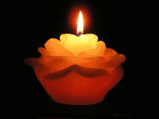Buddhist Monks observe
227 monastic codes called Patimokkha Rules. They are allowed to possess only
eight requisites: thee robes, an alms
bowl, a knife, a needle, a waistband, and a water strainer. They can, however,
accept other necessities presented to them by lay followers. The monk’s life
and daily duties a little differ each Theravada countries. In this post,
describe about Myanmar and Thai monks.
Monks’ daily routine
start at 4 am. When they get up and get ready for the morning chanting. After
that they go on an alms round to receive offerings which are mostly food from
lay people. Monks cannot beg or make any request for things. They accept the
offerings only when they are invited to do so. An invitation must be made by
lay people who wish to make merit by offering things monks need in their
monastic life. The alms round takes about an hour to complete. After that monks
return to the temple to have breakfast at around seven 0’clock. Their breakfast
consists mostly of the alms they have received. At 8 0’ clock they gather for
another chanting which lasts for an hour
in Thailand but in Myanmar after having breakfast monks have to go Pali classes
and study in memorized Pali . After the chanting , monks are allowed to do
their own things.
Some monks may be
invited to attend religious ceremonies inside or outside the temple. Some may
attend class studying Dhamma or Pali language. Eleven 0’clock is monks’ lunch
time. They have to finish their lunch before 12:00 noon and they are not
allowed to have a meal after midday until the next day. After lunch they are
free to continue their study or rest. They gather again at 6 0’clock for the evening
chanting. After the chanting, they have to study Pali and Dhamma after that
they sleep. Apart from the daily routine, monks take part in religious
ceremonies organized at the temple important Buddhist holy days. Sometimes they
are invited out to perform ceremonies such as house warming, house blessings,
opening ceremonies, funeral, etc.
When being ordained, an
ordination candidate is given a Pali monastic name. The name comes from the
spiritual teacher or preceptor of the candidate himself. However, newly
ordained or ordinary monks are often addressed by an honorific title Ashin or
Phra, U and his given name prior to ordination. Pali monastic names are
reserved for formal occasions. Monks are governed by the Ecclesiastical Council
chaired by the Supreme Patriarch. A temple is administered by an abbot and
other senior monks in a descending order. Monks are ranked according to their
seniority, administrative or scholastic abilities. They can be promoted to a
higher rank in recognition of their service. Monks are highly revered by lay
followers. Special vocabulary is used when lay people interact with monks or
refer to them.
At religious
ceremonies, monks sit on a raised platform while lay devotees sit on the floor.
The interaction between monks and female
lay followers is restrained. They may interact with one another in an open
space. They are not allowed to have a conversation where there is no one else
around but the two of them. Touching between monks and woman is forbidden.
Monks are not allowed to touch an object being held or touched by woman.
In Thailand, when
receiving things from a woman, a receiving cloth must be placed on the floor
for the woman to place the object on. At the same time the monk will hold the
other end of the cloth in a gesture of the receiving what is presented. When
placing alms in an alms bowl, woman donor must be careful not to touch the
bowl, not to stand too close to the monk and not to touch the monk’s robe. But in
Myanmar, Monk can receive things directly from female donor without any barrier
or without any cloth piece. Some monks are actively involved in worldly
activities such as caring for the sick, the needy, the orphans etc. Because of
these activities, many temples have unintentionally turned into hospitals,
schools, day care centers or rehabilitation centers. Even when temples do not
provide that kind of service, they have always been considered the last refuge
for suffering beings.
The practices of Monks
set them up for a long and fulfilling life. Not worrying about material
objects, sex, and food all the time gives Buddhist monks a very stress free
life. Through meditation, they are able to divert their energy into what
is important to them–living a simple, harmonious quality of life.
Source: Pornpimol Senawong, Thai Ties, Samaphan Publishing Co,Ltd, Bangkok, 2008



_t607.jpg)
















0 comments:
Post a Comment